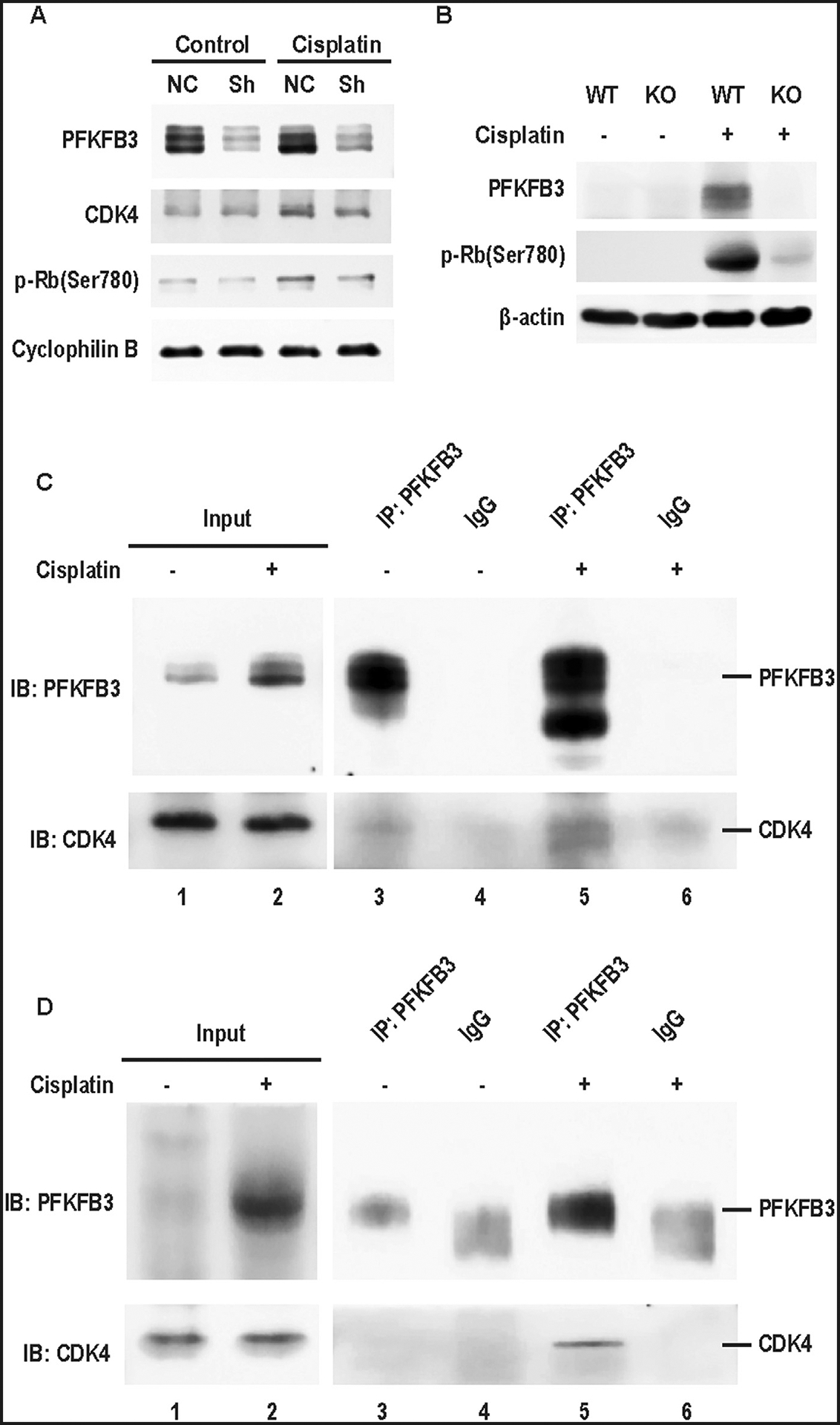Fig 7.

CDK4 activation is dependent on PFKFB3 in cisplatin-induced AKI. (A) Pfkfb3-knockdown (Sh) and negative control (NC) RPTCs were incubated with or without 20μM cisplatin for 24 hours. Whole cell lysates were collected for immunoblotting of PFKFB3, CDK4 and phosphorylated-Rb, and cyclophilin B (internal control). (B and D) Pfkfb3-WT and Pfkfb3-KO littermate mice were intraperitoneally injected with 30 mg/kg cisplatin or saline. Mice were euthanized at day 3 after cisplatin injection to collect kidney cortex tissues for immunoblot and immunoprecipitation analysis. (B) Immunoblots of phosphorylated-Rb and β-actin in Pfkfb3-WT and Pfkfb3-KO littermate mice with or without cisplatin treatment. (C) RPTCs were incubated with or without 20 μM cisplatin for 24 hours to collect whole cell lysate for immunoprecipitation with anti-PFKFB3 antibody or IgG (negative control). Immunoprecipitates were analyzed by SDS-PAGE and immunoblotting with indicated antibodies. (D) Lysates of mouse kidney cortex tissues were immunoprecipitated with anti-PFKFB3 antibody or IgG (negative control). Immunoprecipitates were analyzed by SDS-PAGE and immunoblotting with indicated antibodies.
